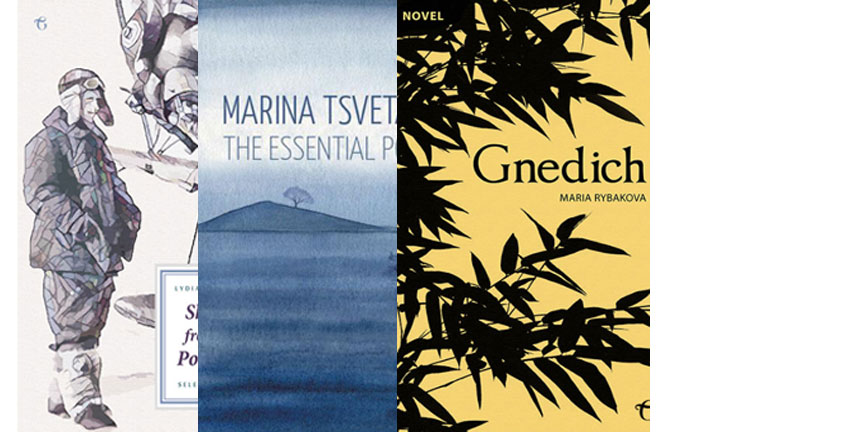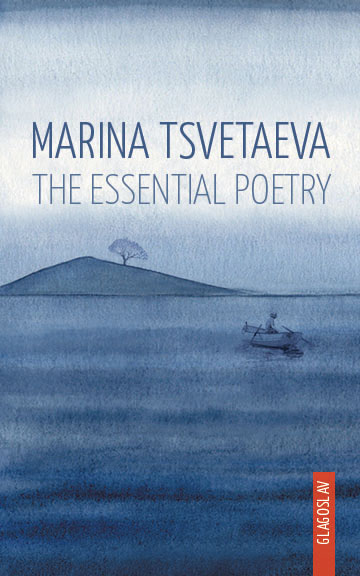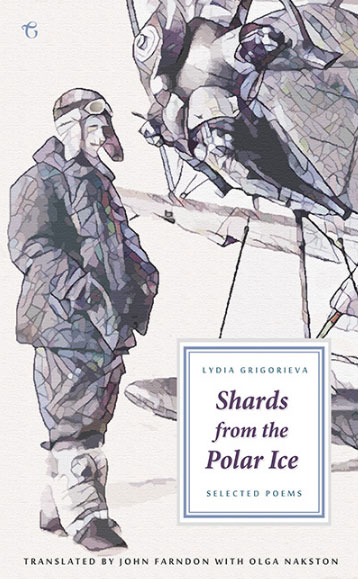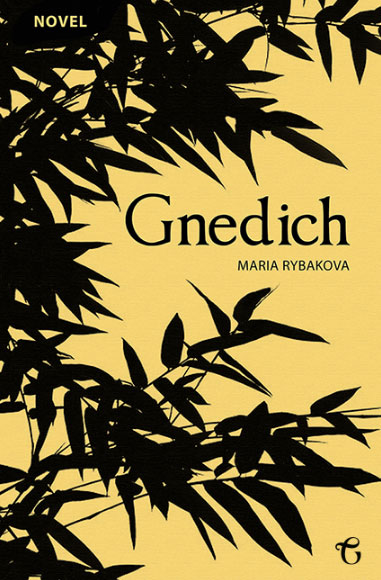Women in translation: 3 new poetry collections released

Glagoslav’s recent poetry publications – a new collection of classic writer Marina Tsvetaeva’s work, Shards from the Polar Ice by Lydia Grigorieva, and Gnedich, written by Maria Rybakova – lead their readers into a different cultural world, and expose the beauty and prowess of too-often overlooked women writers in translation.
Indeed, August 2016 marked the third annual Women in Translation month, putting a spotlight on the fact that they make up less than 30% of translated texts. Therefore, it is refreshing to see a focus on writers as powerful and important as Tsvetaeva, Grigorieva and Rybakova, who can now reach the global readership they deserve.
Celebrating Tsvetaeva’s rough edges
 |
Poetry is unique in its formal constraints, which makes it challenging to translate. Michael Naydan, co-translator of this latest collection of Tsvetaeva’s poetry, talks about the “acoustic properties” that need to be conveyed in any translation, and to do so successfully requires skill and creativity. Perhaps for this reason, translators often shy away from replicating formal verse and instead create word-for-word literal renditions of poetry. But the translators of all three of these works use rhyme and meter that follows, as closely as possible, the original texts.
Marina Tsvetaeva, perhaps the most well-known of these writers, is daringly experimental, and her poetry soars. Naydan and Slava Yastremski’s translation captures and retains the uniqueness of her work; they deliberately avoid smoothing off the “rough edges” of her writing. This leads to moments of honesty and exposure that feel raw in a way seldom seen in poetry in English; the poet breaking off mid-verse because “The knife has become too sharp” (“The Novice”), or the joyful admission that she loves “to kiss/ Hands” and to “give out names, / And also – to open up doors!” (“Insomnia”).
This translation embraces and celebrates the unrestrained passion that runs through Tsvetaeva’s poetry, and unlocks the complexity of her verse.
Sorrow and psychology
 |
There is an epic quality to all three of these poets’ work, which is often linked to physical or psychological landscapes. Lydia Grigorieva, who is a leading figure in Russian poetry today, paints textured images of places she has visited. Waterloo Bridge becomes a “mighty fossilized torrent”, and Rome evokes “the Eternal city […] Stretched through the universe.”
It is Grigorieva’s “rich imagery, simplicity, and perfection of form” that drew John Farndon to her work. His translation reflects the tightness of the original poetry; Grigorieva’s lyricism is more contained than Tsvetaeva’s, but no less powerful. In “Arctic Circle” words have the power to make memories “resonate”, “Like a ticking time bomb”. Grigorieva appreciates the power and the gravity of language, and the precision of her verse belies her reverence for poetry itself.
 |
Maria Rybakova’s Gnedich is the most curious of these three publications. A short novel-in-verse about Nikolai Gnedich (1784-1833), the first translator of The Iliad, Rybakova tells the story of his life in a 12-canto epic poem that echoes Homer in its structure. It defies categorization – one of the reasons, according to Glagoslav, that it hasn’t received any literary prizes, despite being met with high acclaim by the Russian literati. Through Rybakova’s verse the reader feels intensely the sorrow and frustration that Gnedich experienced throughout his life. The Iliad becomes his prison as well as his main happiness in life.
Elena Dimov’s translation is beautiful; she communicates the lyricism of Rybakova’s verse and the intensity of her metaphors. Gnedich feels increasingly isolated as his “dreams creep and rise, like glass” between him and the world. His suffering is painful, a Russian reality rather than a Greek one – “in Greek even suffering is good, and in Russian it is nothing but pain.” The beauty of the text he is translating contrasts with the difficulty of his task of translation, a reality which must strike home for all translators of verse. But if Dimov suffered in translating Rybakova, she doesn’t let on in a finished piece that feels effortless.
All rights reserved by Rossiyskaya Gazeta.
Subscribe
to our newsletter!
Get the week's best stories straight to your inbox
